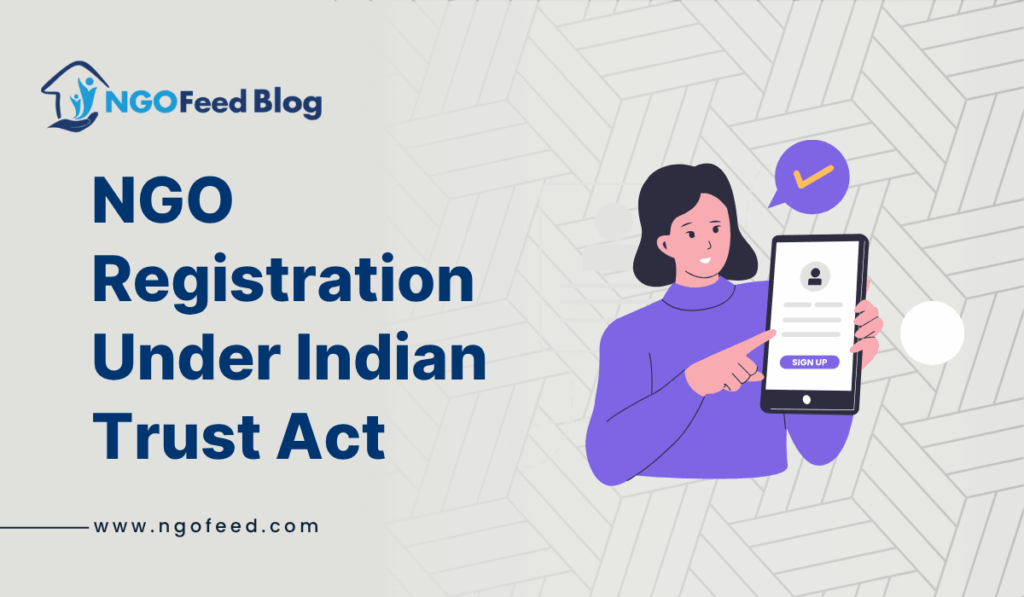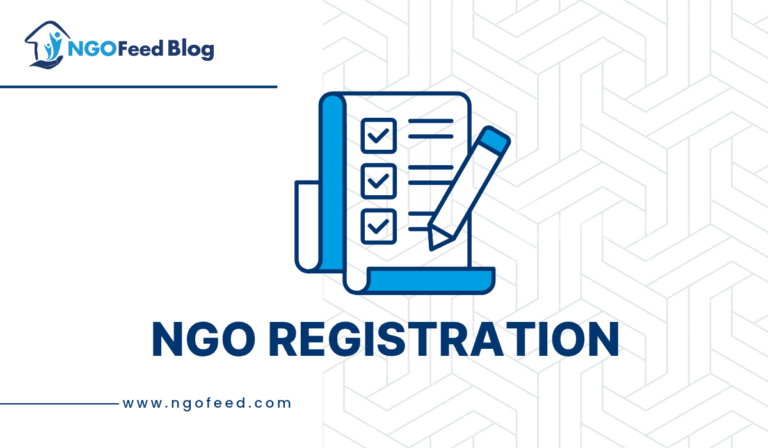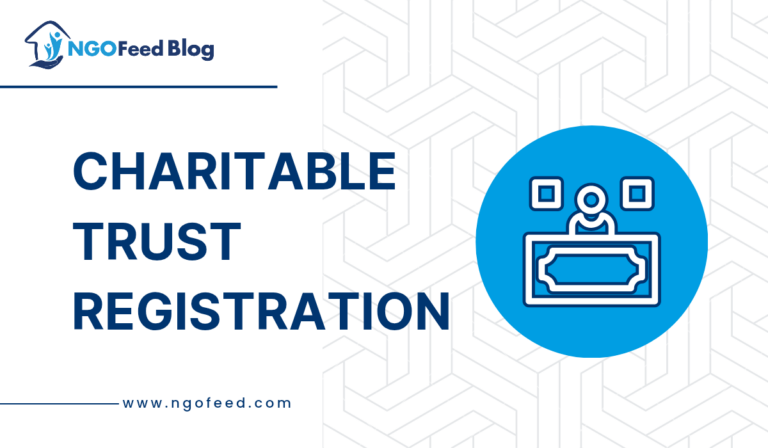NGO Registration Under Indian Trust Act: Non-Governmental Organizations (NGOs) or Non Profit Organizations, are vital in solving social, environmental and economic problems in India. They are usually self-governed and formed by individuals or groups wanting to improve society. If you’re looking to start an NGO in India and are considering the Indian Trust Act as your legal structure, this guide will walk you through the process, benefits, requirements and key considerations of trust registration.
Table of Contents
What is a Trust?
Trusts may be defined as a legal entity established by one or more persons (known as “settlors”) whereby one or more asset is entrusted to one or more trustees who hold it for the benefit of certain beneficiaries or for a charitable purpose. Trusts may be created on the basis of mutual confidence and legal obligation between the settlor, trustee and the beneficiary.
Also Read: Cultural Appropriation Vs Cultural Respect in NGO Campaigns
There are two types of Trusts in India:
- Private Trusts: are trusts for the benefit of individuals or families.
- Public Charitable Trusts: are trusts for the benefit of the public-at-large – education, health, relieve disability, and poverty etc.
In the context of NGOs, we are referring to Public Charitable Trusts.
Legal Structure: The Indian Trusts Act, 1882
The Indian Trusts Act, 1882 outlines the establishment and administration of private trusts in India. Public charitable trusts, however, are not operationally governed in this Act but are governed by state laws at the time of the formation of the public charitable trust. In some States, like Maharashtra and Gujarat, there is a Public Trusts Act (e.g., the Bombay Public Trusts Act, 1950), whereas, in other states, a public trust is established under the general principles of the Indian Trusts Act.
Why Register an NGO as a Trust?
Registering a charitable trust provides the NGO with:
- Legal recognition to own property, receive grants and enter into contracts.
- Tax exemptions under Sections 12A and 80G of the Income Tax Act.
- Transparency, accountability and improving donor confidence.
- A structured governance model, including trustees and documented responsibilities.
Also Read: FCRA Rules 2025: What Every NGO in India Must Know
SNGO Registration Under the Indian Trust Act: Step-by-Step Guide
1. Decide on the Name of the Trust
Choose a unique and meaningful name for your trust. It should not violate any provisions of the Emblems and Names Act, 1950.
2. Decide the Trustees and Settlor
- Minimum of two trustees (ideally more for credibility).
- One settlor is required (the person who donates initial property/funds).
- Trustees must be competent adults (18+ years) and Indian citizens. Foreign nationals can be trustees with due compliance.
3. Draft the Trust Deed
The trust deed is the most important document, serving as the charter of the NGO. It should be carefully drafted and typically includes:
- Name and address of the trust
- Objectives and purpose of the trust
- Details of the settlor and trustees
- Powers and duties of trustees
- Procedure for appointment/removal of trustees
- Administration and management clauses
- Dissolution clause (in case the trust is wound up)
- Details of trust property (movable or immovable)
- Beneficiaries and how the benefits will be delivered
Also Read: Values Driven Fundraising
A well-drafted trust deed ensures smooth functioning and legal compliance.
4. Choose the Registered Office Address
You need a physical address for registration, which can be either:
- A rented space with a NOC (No Objection Certificate) from the landlord or
- A self-owned space.
5. Get the Trust Deed Notarized and Printed on Stamp Paper
The trust deed must be executed on a non-judicial stamp paper, the value of which varies from state to state. After it’s drafted and signed, it must be notarized.
6. Register the Trust with the Local Sub-Registrar
Visit the local Sub-Registrar Office of the district where the trust is being registered. Submit the following documents:
Required Documents:
- Original trust deed, signed and notarized
- One photocopy of the deed
- Photographs and ID/address proof (Aadhaar, PAN, etc.) of the settlor and trustees
- PAN card of the trust (can apply after registration)
- Proof of registered office (electricity bill, NOC from the owner)
- Witnesses during registration (usually two)
The Sub-Registrar will retain the photocopy and return the original with their official seal.
Also Read: NGO Darpan Registration
7. Apply for PAN Card and Bank Account
After registration:
- Apply for a PAN card in the name of the trust.
- Open a bank account to manage financial transactions and donations.
Post-Registration Requirements
Apply for 12A and 80G Certifications
To avail tax exemption and allow donors to claim deduction:
- 12A Registration: Exempts income of the trust from tax.
- 80G Registration: Allows donors to claim tax deductions on donations.
Both applications are made to the Income Tax Department online via the Income Tax portal (using Form 10A for new registration).
Maintain Proper Records
- Keep a book of accounts, vouchers, and donor details.
- Conduct regular audits if required.
- File annual returns, as per Income Tax rules.
Also Read: Society Registration Process in India
Compliance and Governance
- Governing Body: Trusts must hold regular meetings of trustees to take important decisions. Minutes should be recorded.
- Transparency: Publishing annual reports, financials, and program outcomes helps in maintaining donor trust and public credibility.
- FCRA Registration (if foreign funding is needed) :If you plan to receive foreign donations, you must register under the Foreign Contribution Regulation Act (FCRA) with the Ministry of Home Affairs.
Advantages of Registering a Trust
- Simple formation process compared to societies or Section 8 companies
- Fewer compliance burdens
- Ideal for small, grassroots organizations or family-led charities
- High level of public trust due to transparency
Limitations of Trust Structure
- Trustees can’t directly profit from the trust
- Not ideal for NGOs with complex fundraising models or commercial activities
- Limited democratic governance (no general body like in societies)
Also Read: Top 10 Government Schemes For NGOs
Conclusion
Establishing as a Public Charitable Trust under the Indian Trust Act is one of the easiest and cheapest venues for starting your path into social work. A Public Charitable Trust offers you both a legal entity with basic governance structure, as well as a platform to be able to grow in the future.
That said, like any other legal entity, you will need to be aware of your compliance obligations, as well as need to ensure you keep appropriate documentation covering the basic requirements you have to build your Public Charitable Trust, as well transparency. I believe with the right intentions, a well drafted trust deed, and a team of trustees committed to the trust, your NGO has the power to make a difference in society.









